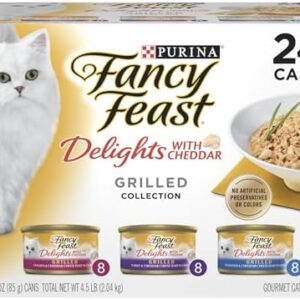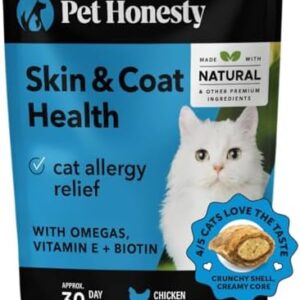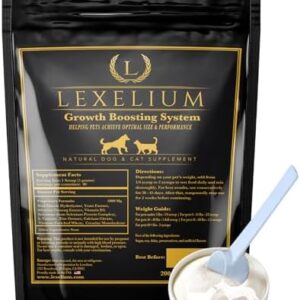
You love your furry feline friend and want to make sure they are getting all the nutrients they need to be happy and healthy. One of the most important things you can do for your cat is to understand the role of protein in their nutrition.
Protein is an essential nutrient for cats, as it provides the building blocks for muscle growth and maintenance, as well as supporting a healthy immune system. Cats are obligate carnivores, which means that they require a diet high in animal-derived protein to thrive. Without enough protein in their diet, cats can develop a number of health issues, including muscle wasting, poor coat quality, and a weakened immune system.
When feeding your cat, it’s important to choose a high-quality cat food that is rich in protein. Look for a brand that lists a meat, poultry, or fish as the first ingredient, as this indicates that the food is high in protein. Avoid foods that list grains or fillers as the main ingredients, as these do not provide the necessary protein that cats need.
Protein requirements can vary based on your cat’s age, activity level, and overall health. Kittens, pregnant or lactating cats, and active adult cats will generally require more protein than sedentary adult cats. It’s important to consult with your veterinarian to determine the specific protein needs of your cat and ensure they are getting enough in their diet.
In addition to choosing a protein-rich cat food, you can also supplement your cat’s diet with protein-rich treats or snacks. Lean meats such as chicken, turkey, or fish are good options for providing your cat with extra protein. Just be sure to avoid feeding your cat cooked bones or fatty cuts of meat, as these can be harmful to their health.
It’s also important to consider the source of the protein in your cat’s diet. Animal-derived proteins are considered to be the most biologically available for cats, as they contain all the essential amino acids that cats need to thrive. Plant-based proteins, such as those derived from soy or grains, are not as easily digested by cats and may not provide all the necessary nutrients.
When shopping for cat food, look for a brand that uses high-quality, animal-derived proteins such as chicken, turkey, or fish. Avoid foods that contain by-products or meat meals, as these may not provide the same level of nutrition as whole meat ingredients.
In addition to protein, it’s important to ensure that your cat is getting a balanced diet that includes other essential nutrients such as vitamins, minerals, and omega-3 fatty acids. Look for cat foods that are formulated to meet the nutritional needs of cats at all life stages, and consult with your veterinarian if you have any concerns about your cat’s diet.
Overall, protein plays a crucial role in your cat’s nutrition and overall health. By providing your cat with a diet that is rich in high-quality protein, you can help support their muscle growth and maintenance, coat quality, and immune system function. Remember to consult with your veterinarian to determine the specific protein needs of your cat and ensure they are getting all the nutrients they need to thrive. Your furry friend will thank you for it with purrs of contentment and good health.






